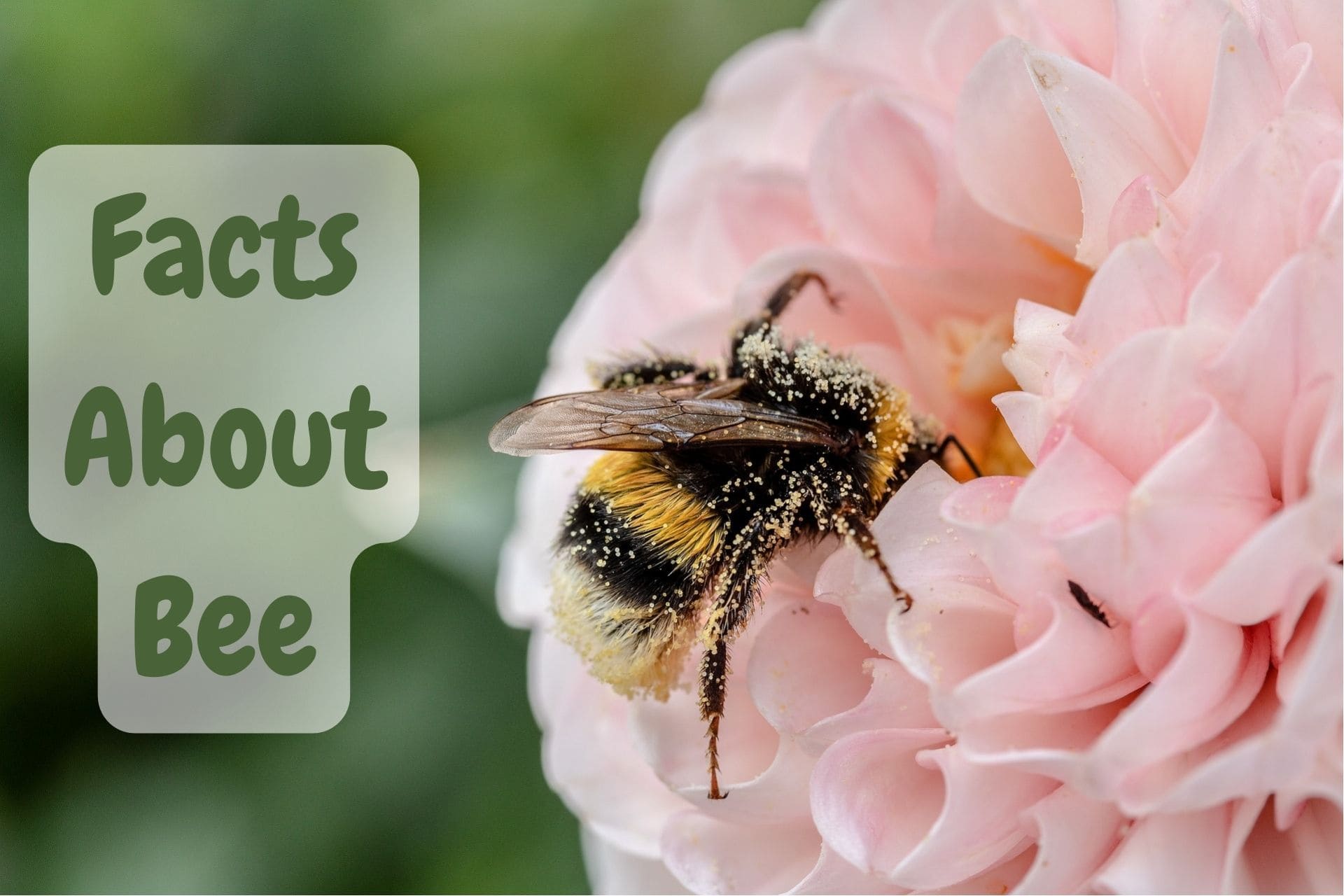Are you curious to know some fun facts about bee? Bees are truly an amazing creatures that are the actual hero to the survival of many plant species. Their delicate wings flap rapidly as they flit from flower to flower, collecting nectar and pollen.
They exhibit vibrant colors of their fuzzy bodies. Colours range from bright yellow and black to metallic greens and blues. These flying beauties are really a sight to behold.
These tiny creatures are also incredibly intelligent. They possess intricate communication system that enables them to work together to find the best sources of food.
Bees are not only beautiful but also incredibly important to our world. Without them, many of the fruits, vegetables, and flowers we enjoy would not exist.
Let’s find out more fun facts about bee, without wasting any time.
Also Read: Butterfly Facts: All about the Beautiful Creature
20,000 Known species
With over 20,000 known species worldwide, bees come in various shapes, sizes, and colors. From the iconic honeybee to solitary bees like mason bees and leafcutter bees, each species has its unique characteristics.
Environment Health Indicators
Bees serve as environmental indicators. Their presence, diversity, and health can indicate the overall health and well-being of ecosystems.
Changes in bee populations can signify environmental disturbances, pollution, or habitat degradation. Scientists study bees as alerting mechanism to potential issues that need attention.
Early Human Interaction
Humans have interacted with bees for thousands of years. Cave paintings in Spain, estimated to be around 8,000 years old, depict people collecting honey from wild bee nests.
Bees have Five Eyes
Isn’t it exciting to know that bees have five eyes, including three eyes on top of their head called ocelli. These additional eyes help bees navigate and orient themselves in flight.
Bees can see more colours than humans
Bees see a broader spectrum of colors than humans. They can perceive ultraviolet light, which allows them to detect patterns and markings on flowers that guide them to nectar and pollen sources.
How do Bees Produce Honey?
Bees possess a specialized stomach called the honey stomach or crop. This ingenious organ allows them to store the nectar they collect from flowers during their foraging expeditions.
Back at the hive, the stored nectar is transformed into the golden goodness we know as honey.
Bees have very sharp Memory Skills
Bees possess excellent memory skills that allow them to remember the location of flowers and other food sources. They can also remember the location of their hive and navigate their way back to it with ease.
Royal Treatment for the Queen
Queen bees are treated like royalty in their hives. They are fed royal jelly, a nutrient-rich secretion produced by worker bees that stimulates their growth and development.
Bees are Amazing navigators
Bees have an extraordinary ability to navigate using the sun’s position and the earth’s magnetic fields. This allows them to travel long distances in search of food and water.
Bees are Very Impressive Fliers
Bees are excellent fliers, capable of reaching speeds of up to 15 miles per hour. Their wings beat rapidly, flapping at an astonishing rate of up to 200 times per second.
Not just Honey, Bees Give us Wax too
Beeswax is a versatile material used in a variety of products. The beeswax is commonly used for candles and cosmetics.
Bees are always on service of ecosystem
Bees provide essential ecosystem services. Through their pollination efforts, they contribute to the production of fruits, vegetables, seeds, and nuts. These natural products are not only important for human consumption but also serve as food sources for other animals.
Bees are extremely hard working
Bees are incredibly efficient workers. They collect nectar and pollen from up to 1000 flowers in a normal working day. On a busy day, the count goes as high as 2000.
Bees transform miraculously
Bees undergo a complete metamorphosis. They start as tiny eggs, hatch into larvae, and then undergo pupation. During pupation they transform into fully developed adult bees.
Short but Extraordinary Lifespan
A typical worker bee lives for about six weeks during the summer season. Within this relatively short lifespan, these female bees perform all sort of vital tasks. Tasks include collecting nectar, producing honey, building honeycombs and tending to the needs of the hive.
After knowing all those amazing fun facts about bee, we can say bees are truly fascinating creatures with many incredible abilities and qualities.
Bees exhibit impressive work ethics, complex social structures and play a vital role in maintaining ecosystem.
We hope these fun facts about bee have shed some light on the importance and wonder of these tiny insects. It is crucial that we continue to protect and preserve bee populations to ensure the health and stability of our planet’s biodiversity.
